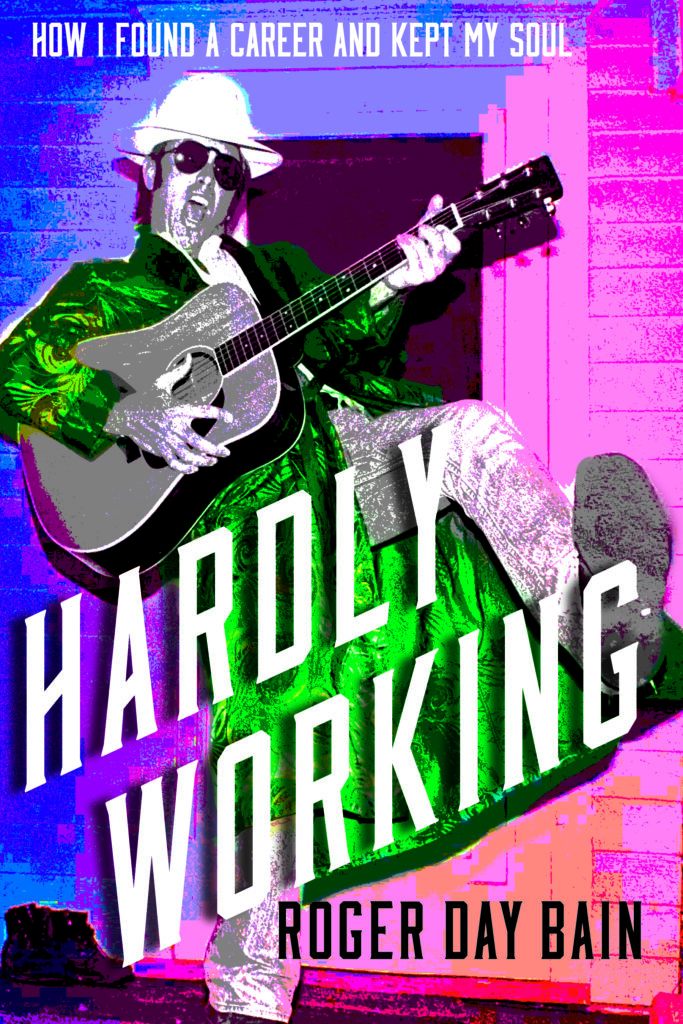Question: Why did you write the book?
Many years ago, I decided to sketch out what I had done to make money throughout my life. The original motivation was to provide a document for my kids; not a path for them to follow but more an entertainment. These “job sketches” evolved into an autobiography filtered through the lens of work. We each have a story to tell. This is mine.
Question: What was your favorite job?
My very last one. I created it. (You’ll have to read the book to find out.)
Question: Does a career define a life?
Not always. In my case, I would say, yes, it does because my work became my life. In a good way. I shaped my self-created job to my talents. (One might say whims.)
Question: Which jobs most shaped your view of life?
I have come to believe that there is no such thing as a worthless job. Each one contributes to your understanding of the world and how it works. But be careful not to overstay once you grow bored or feel stagnant.
Question: How did you recall the things you did many decades ago?
It is remarkable how memory works. Dwell enough on something and small details return. Not necessarily important details, rather, snapshots from the photo album that is our mind. For the most part, I have written what I remembered. And I have tried to be truthful. But memory and truth are two different things. I confess to augmenting my memory with Google searches from time to time. How else would I have known the number of people employed by the auto industry in the 1960s?
Question: Who are some of the most unforgettable characters you worked with?
Doc, the caddy master, at the Hinsdale Golf Club. The Ace hamburger flipper at Lum’s restaurant in Lawrence, KS. Dishwashing Moses at Grinnell Hall at Southern Illinois University. The Fabulous Johnny A at Sunflower Cablevision. Sherlock the Basset Hound in Minneapolis. Dr. Bingo, the mad pharmacologist.
Question: Who are your most likely readers?
I am of the baby boom generation, but the book provides a social history for any age group. I believe dividing populations into age blocs can miss the point. A better gauge might be dividing people into taste blocs. Here is who might enjoy Hardly Working: young people who are curious to expand their frame of reference, who may be uncertain of their career path. Ex-hippies. Social historians. Corporate dropouts. Wannabe corporate dropouts. Ad industry people. Memoir enthusiasts who wish to absorb a point of view from a regular (not normal!) person. Cable TV alums. It may also serve as a gift for recalcitrant kids or grandkids. The geo-focus of the book includes Chicago and its western suburbs, Lawrence, KS, Minneapolis, Carbondale, IL, San Francisco and the open road.
Question: What do you hope the book can accomplish?
I hope that Hardly Working might serve as a look at the latter half of the twentieth century and the beginning of the twenty-first from the perspective of a non-famous person. I hope the book is provocative in a positive way. About twenty people have read the manuscript as of this writing. Two of them have already changed the direction of their work life.
Question: What was your writing routine?
It varied from one afternoon-a-year to three hours every morning for a month. My library in Arlington Heights, IL, has a monthly writer’s group. Reading aloud chapters and getting immediate feedback gave me some direction. The ensuing discussions often veered into similar jobs that group members had. They recalled tasks that were bureaucratic or time wasting or bosses or co-workers who were wonderful or not. Of special importance seemed to be jobs that are deemed low skill or incidental or low paying. Summer jobs. Starter jobs. Dirty jobs: the jobs that are the binding agents of society. The jobs deemed essential during a pandemic.
Question: Is there a soundtrack?
Yes. I thought you would never ask. Most friends and acquaintances think of me as a songwriter. I have collected some twenty compositions that are mentioned in the book or reflected my circumstances at various stages of the story. https://rogerbainmusic.com/hardly-working
Question: Do you have advice for young people beginning to think about what they want to be when they grow up?
Keep an open mind, don’t be afraid of failure, have fun, don’t settle for the obvious, pay attention to what fulfills you and read many books, hopefully this one, available Feb. 25 on Amazon and (I hope) other fine platforms.

If you are a bookstore or book reviewer, I will send you an ARC upon request.


